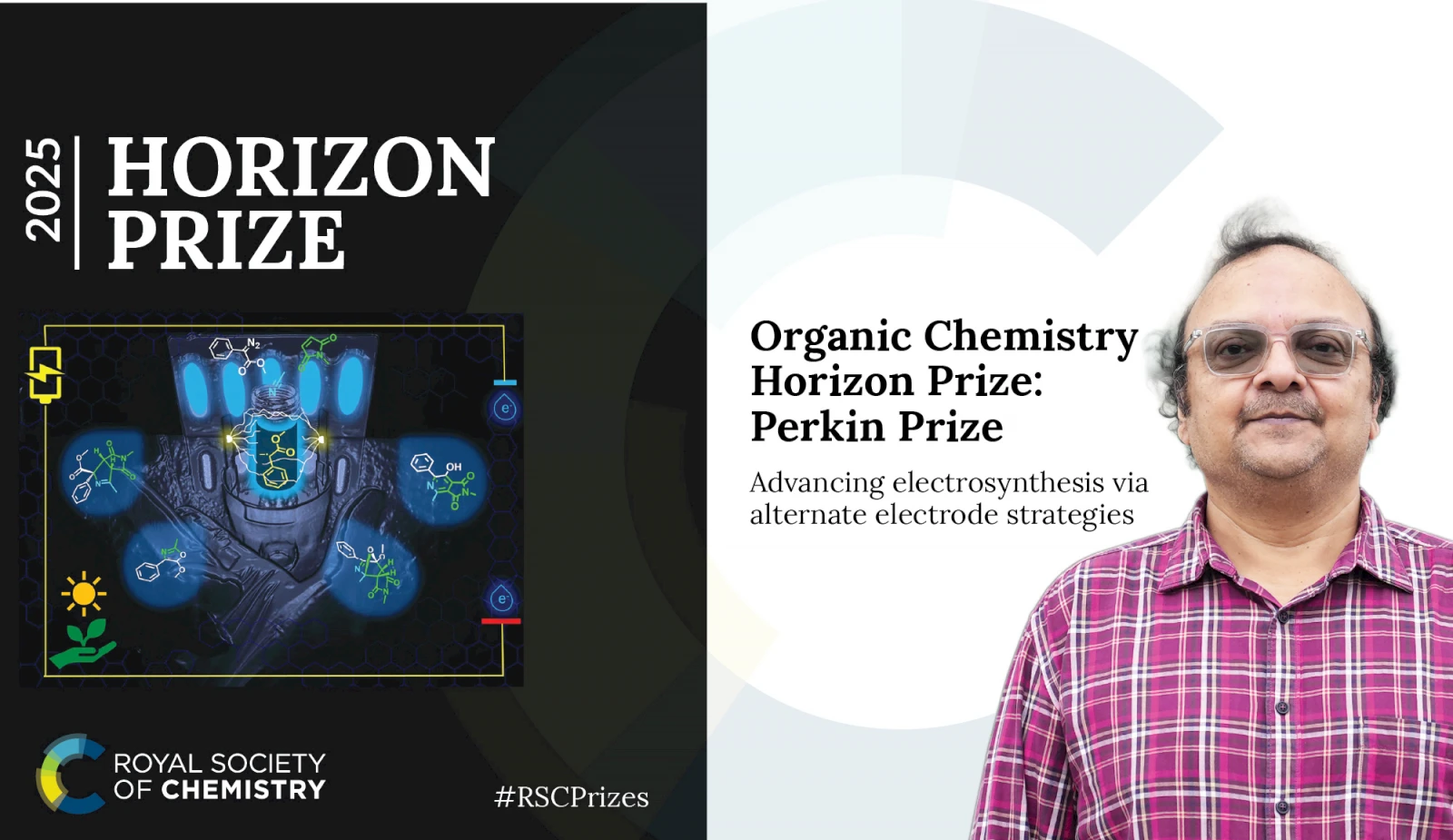Professor Subhabrata Sen Wins 2025 Royal Society of Chemistry Horizon Prize
In a groundbreaking moment for Indian science, Professor Subhabrata Sen and his team from the School of Natural Sciences at Shiv Nadar University, Delhi–NCR, have secured the coveted 2025 Horizon Prize from the Royal Society of Chemistry (RSC). This prestigious accolade, awarded for the first time to an Indian team since its inception in 2020, heralds a new era of innovation and sustainability in chemical science.
The Horizon Prize, one of the RSC’s most esteemed honours, celebrates groundbreaking discoveries that push the boundaries of chemical science. Professor Sen’s team has achieved just that with their pioneering development of Alternate Electrode Electrolysis (AEE), a novel and efficient strategy for organic electrosynthesis. This revolutionary technology, which switches electrochemical reactions between two pairs of electrodes via a custom-built microcontroller, promises to transform the landscape of chemical reactions.
"This recognition from the Royal Society of Chemistry is not just an honour; it is a result of the relentless pursuit of scientific excellence and the power of collaborative innovation. Our work is a celebration of curiosity, persistence, and the thrill of discovery. We are proud to stand at the forefront of sustainable chemistry, driving forward a greener, more efficient future," said Professor Sen.
The implications of AEE are monumental. By streamlining and optimizing critical electrochemical processes, this innovation paves the way for sustainable applications in clean energy, carbon reduction, and green manufacturing. Imagine a world where pharmaceuticals are produced more efficiently, agrochemicals are synthesized sustainably, and the environmental footprint of these industries is significantly reduced. This is the future that Professor Sen and his team are engineering.
Professor Ananya Mukherjee, Vice-Chancellor of Shiv Nadar University, expressed her pride and admiration for the team. "We are overjoyed by this extraordinary achievement. Professor Sen and his team have not only brought global recognition to our university but have also set a new benchmark for scientific excellence. Their work is a shining example of how innovation and interdisciplinary collaboration can solve real-world problems and contribute to a sustainable future."
The Horizon Prize, named after Sir William Henry Perkin, the inventor of the first synthetic dye, is a career-defining recognition for transformative contributions. Professor Sen’s team includes Subhankar Bera, Dr. Debajit Maiti, Dr. Suchismita Rath, and Shweta Singh from Shiv Nadar University, as well as Dr. Srimanta Guin, Professor Debabrata Maiti, and Dr. Argha Saha from the Indian Institute of Technology Bombay.
Their journey was marked by relentless dedication and ingenuity. Crafting a microcontroller that could precisely direct electrical currents to four electrodes in a tiny electrochemical cell was no small feat. The team overcame countless challenges, from designing the cell to engineering the custom electronics, through painstaking iterations and countless hours in the lab.
Traditional electrochemical methods for organic synthesis often come with serious drawbacks: wasted energy, harmful metals, and inconsistent reaction rates. AEE technology shatters these limitations. With a unique cell design that ensures a steady and strong electric current, chemical reactions become faster, cleaner, and more efficient.
The next chapter in this scientific saga involves developing a user-friendly electrosynthesis instrument and cell specifically designed for AEE. "Our goal is to create a plug-and-play setup that lowers the entry barrier for chemists worldwide," Professor Sen shared. "This will enable rapid and confident adoption of AEE technology, accelerating its broader application and impact."
The long-term vision is clear: greener, more affordable pathways to crucial molecules. Whether in pharmaceuticals, agrochemicals, or CO₂-reduction technologies, the potential applications are vast. Professor Sen and his team are not just scientists; they are trailblazers, leading the charge towards a sustainable and innovative future.
